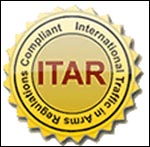![By Ncollida1106 (Own work) [CC-BY-SA-3.0 (http://creativecommons.org/licenses/by-sa/3.0)], via Wikimedia Commons http://commons.wikimedia.org/wiki/File%3AMTW_Picture.jpg By Ncollida1106 (Own work) [CC-BY-SA-3.0 (http://creativecommons.org/licenses/by-sa/3.0)], via Wikimedia Commons http://commons.wikimedia.org/wiki/File%3AMTW_Picture.jpg](https://www.exportlawblog.com/images/honeywell.jpg)
The State Department announced last week that it debarred LeAnne Lesmeister, a former export compliance officer for Honeywell International, Inc., from ITAR-related activities because she “used her position to circumvent Honeywell’s export compliance program in the fabrication of various export control documents that Ms. Lesmeister presented as Department of State authorizations.” Honeywell had voluntarily disclosed Lesmeister’s activity to the State Department.
DDTC’s charging letter to Lesmeister in July of this year provides details of egregious export control violations alleged against her to support the 21 violations with which she was charged. Just samples from the charging letter are stunning. In connection with her work as a senior export compliance officer for a Honeywell aerospace facility in Florida, DDTC alleged the following:
- Licenses Lesmeister “fabricated” used DSP-5 license numbers that, in some cases, had appeared on previously approved licenses to Honeywell for unrelated products or, in other cases, had appeared on previously approved licenses to unrelated applicants where a Honeywell entity sometimes appeared as a party or often not.
- With respect to an approved technical assistance agreement that Lesmeister “falsified,” she wrote a Honeywell employee that “we are expecting to see approval within about a week at max, all staffed agencies have responded so it is just a matter of getting the licensing office to finalize.”
- For a “fabricated” DSP-5 license and an falsely approved technical assistance agreement, Lesmeister wrote to two Honeywell employees, “[t]hey ended up sending it to me – it ain’t pretty but it is official.”
- In one case, Lesmeister “fabricated” a letter “supposedly issued by the Office of Defense Trade Controls Licensing” that purported to approve a temporary change in end-use to a previously exported item.
In one instance, Honeywell relied on a false DSP-5 license created by Lesmeister and, in turn, attempted to export a product to Argentina and submitted the false license to U.S. Customs. Customs rejected the transaction because the false license number was not registered in the Automated Export System.
This case is noteworthy not just for its alleged activity, but it was also a first for the State Department. Lesmeister failed to answer her charging letter. As a result, and for the first time according to the State Department, it referred an unanswered charging letter alleging ITAR violations to an Administrative Law Judge for default consideration. The Administrative Law Judge issued a default order against Lesmeister, and DDTC then issued its debarment order last week.
Admist all of this, it is important to note that DDTC charged Lesmeister with violations only between 2008 and 2012 although she had worked in export compliance at Honeywell for 27 years. With the applicable statute of limitations likely running in connection with Honeywell’s voluntary disclosure, there is nothing in State Department documents made public to date that refer to any alleged violations that occurred prior to 2008.
At the moment, the fact that no penalties, civil or criminal, have been imposed against anyone is stunning. Honeywell, however, appears to have done several things right. Honeywell terminated Lesmeister in June 2012 upon discovery of the violations and, sometime thereafter, voluntarily disclosed the matter to the State Department.
On the other hand, Honeywell may not be out of the woods. The violations as alleged are significant to say the least and appear to have been discovered by Honeywell only in 2012 after Lesmeister had been with the company for over a quarter-century. The DDTC charging letter also describes Lesmeister’s activities in ways that suggest impermissibility could have been suspected or detected. For example, her “fabricated” DSP-5 licenses were described in different instances as “low-quality scan[s],” included “page numbers [that] were not sequential” and, perhaps worst, “the country of ultimate destination was inconsistent with the end-users listed.”
There has been no mention of any parallel proceedings being conducted by the Justice Department, or any other U.S. agency like Customs, for alleged activities that violate more than just ITAR. One has to wonder what else may be happening, however, when the only penalty is a single person’s debarment from ITAR-related activity after that person for years was running a counterfeit government licensing department from her office for one of the largest U.S. companies.
Until more information is made public, the debarment of LeAnne Lesmeister is, at a minimum, an exceptional case for ITAR enforcement. If there is a preliminary moral to the story, it should be that routine audits of compliance programs do serve a purpose and, if properly calibrated, should detect issues like those in this case.
Clif adds: Â One explanation for Ms. Lesmeister’s failure to respond to DDTC is concern over possible criminal prosecution and a desire to avoid providing either incriminatory information admitting the violations or information denying the violations that could serve as a basis for a prosecution for lying to federal agents. Â There is no evidence on PACER that Ms. Lesmeister has been indicted yet, but that doesn’t mean there isn’t an on-going parallel criminal investigation
![By Sgt. Scott M. Biscuiti [Public domain], via Wikimedia Commons http://commons.wikimedia.org/wiki/File%3ADefense.gov_photo_essay_090329-M-7747B-015.jpg By Sgt. Scott M. Biscuiti [Public domain], via Wikimedia Commons http://commons.wikimedia.org/wiki/File%3ADefense.gov_photo_essay_090329-M-7747B-015.jpg](https://www.exportlawblog.com/images/thermal_sight.jpg)

 Posted by
Posted by  Category:
Category: 

![By Ncollida1106 (Own work) [CC-BY-SA-3.0 (http://creativecommons.org/licenses/by-sa/3.0)], via Wikimedia Commons http://commons.wikimedia.org/wiki/File%3AMTW_Picture.jpg By Ncollida1106 (Own work) [CC-BY-SA-3.0 (http://creativecommons.org/licenses/by-sa/3.0)], via Wikimedia Commons http://commons.wikimedia.org/wiki/File%3AMTW_Picture.jpg](https://www.exportlawblog.com/images/honeywell.jpg)

 Each time a company tries to tout its registration under
Each time a company tries to tout its registration under  I’m just going to let this quote from Frank Gaffney in an
I’m just going to let this quote from Frank Gaffney in an 

